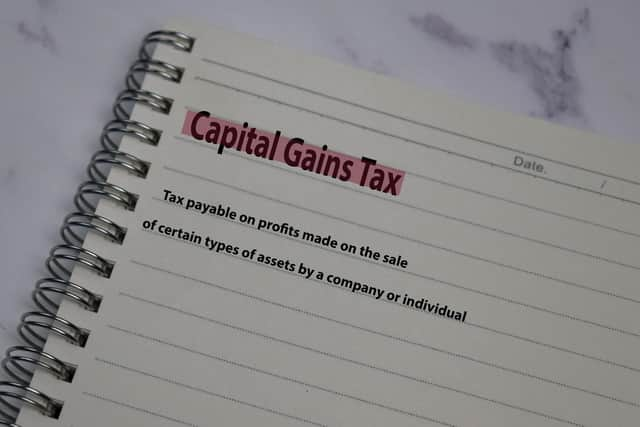What is Capital Gains Tax? Jeremy Hunt ‘considers rise in capital gains tax’ to fix £50 billion hole
Jeremy Hunt is organising a “raid” on savers, landlords and entrepreneurs in order to plug the black hole of £50 billion in the UK’s public finances, according to a report by The Telegraph. The Chancellor is ‘weighing’ an increase in the rate of Capital Gains Tax (CGT) as well as taxes on dividends in advance of the Autumn Statement.
Reports indicate that not only are officials organising a cut to the £2000 tax-free dividend allowance but Hunt himself is planning changes to the rate and allowances on CGT while hitting the aforementioned groups with an increased dividend tax.
What is Capital Gains Tax?


Advertisement
Hide AdAdvertisement
Hide AdAccording to the UK Government, CGT is a “tax on the profit when you sell (or ‘dispose of’) something (an ‘asset’) that’s increased in value.
“It’s the gain you make that’s taxed, not the amount of money you receive. For example, if you bought a painting for £5,000 and sold it later for £25,000, you’ve made a gain of £20,000 (£25,000 minus £5,000).”
The Economic Times reports that “assets are things you own that you can sell for money” and CGT is levied on profits made from the sale of these assets. CGT rates depend on the taxpayer, for basic taxpayers it is charged at either 10 or 18% but for additional rate taxpayers it sits at 20 or 28%.
What is Jeremy Hunt planning with Capital Gains Tax?


Jeremy Hunt, the new Chancellor of the Exchequer following Kwasi Kwarteng being sacked, is weighing up a rise in the headline rate of CGT and dividend taxes on the Autumn statement. These tax rises instantly saw backlash from business leaders who protested that it would undermine enterprise and saving and particularly landlords who have “faced a tightening squeeze on returns” following the 2019 General Election.
Hunt and Tory Leader Rishi Sunak, however, have concluded that those with the “broadest shoulders” should be made responsible for plugging the public finances. The Telegraph report detailed a Treasury source who said that big changes are in consideration for CGT but a lot can change before the Autumn Statement mid-November.
A Treasury spokesperson also commented that Sunak and Hunt agreed that “everybody would need to contribute more tax in the years ahead.”
How much is Capital Gains Tax expected to raise?
Capital Gains Tax is expected to raise £15 billion this tax year which is approximately 1.5% of the Treasury’s total intake, according to the report by The Office for Budget Responsibility.
When is the Autumn Statement 2022?
The Institute of Chartered Accountants in England and Wales reports that the next fiscal event or ‘Autumn Statement’ has been delayed until November 17, 2022. At this event it is expected that reductions in reliefs for CGT are likely to be granted as well as increasing the headline rate.
Comments
Want to join the conversation? Please or to comment on this article.
